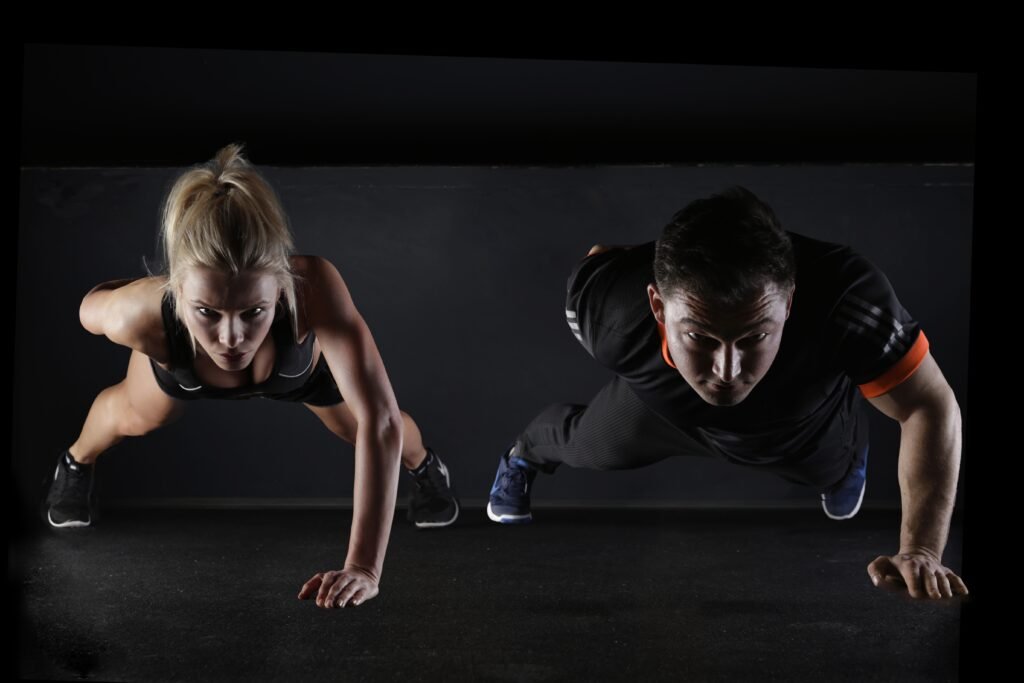Hey there, fitness enthusiasts! If you’re chasing the dream of bulging biceps or a chiseled physique, you’ve probably heard how vital protein is for muscle development. But how much should you consume? What are the best sources? Are supplements worth it? Stick around as we dive deep into everything you need to know about protein and muscle building.
Protein and Muscle Growth: The Perfect Duo
Protein is the building block of muscles, playing a crucial role in repair and growth. When you work out, your muscles experience micro-tears. This is where protein steps in, helping to repair those tears and make your muscles stronger and bigger.
For those serious about muscle growth, a protein-rich diet is non-negotiable. Studies have consistently shown that individuals who combine strength training with adequate protein intake gain more muscle compared to those who don’t prioritize protein.
Why Protein Is Essential for Building Muscle
When you engage in weightlifting or resistance exercises, your body activates a process called muscle protein synthesis (MPS). This process repairs the small tears in your muscle fibers, leading to growth. However, without enough protein, your body won’t have the raw materials it needs to keep up with this repair process.
Amino Acids: The Building Blocks
Protein consists of amino acids, and among them, essential amino acids (EAAs) are the most crucial since your body can’t produce them on its own. One standout is leucine, which acts like a switch for MPS. Foods rich in leucine—like chicken, eggs, and whey protein—are top picks for muscle building.
How Much Protein Do You Actually Need?
Protein requirements depend on your weight, activity level, and fitness goals. If building muscle is your aim, experts recommend consuming 1.6 to 2.2 grams of protein per kilogram of body weight daily.
Example Calculation
For someone weighing 75 kg (165 lbs), the daily protein target would be:
- Minimum: 120 grams
- Maximum: 165 grams
Dividing this intake across 4–6 meals per day ensures a steady supply of protein, keeping your muscles primed for growth.
The Importance of Timing
Consuming protein at the right time can amplify your results. Pre- and post-workout meals are especially important:
- Before Workouts: Provides energy and reduces muscle breakdown.
- After Workouts: Boosts recovery and stimulates MPS.
Aim to include protein within an hour of completing your workout to maximize recovery.
Top Protein Sources to Fuel Your Gains
Animal-Based Proteins
- Chicken Breast: Low in fat and high in protein (31g per 100g).
- Eggs: A versatile option providing 6g of protein per egg.
- Greek Yogurt: Packed with about 10g of protein per 100g.
- Fish (e.g., Tuna): Rich in protein and omega-3 fatty acids (25g per 100g).
- Lean Beef: High in iron and protein (26g per 100g).
Plant-Based Proteins
- Lentils: A fantastic source of protein and fiber (9g per 100g).
- Quinoa: A complete protein with 8g per cooked cup.
- Chickpeas: Contain around 7.3g of protein per half-cup.
- Tofu: Offers 8g of protein per 100g and is extremely versatile.
- Tempeh: High in protein and probiotics (19g per 100g).
Animal Protein vs. Plant Protein
When deciding between animal and plant-based proteins, it’s important to weigh the pros and cons:
| Animal-Based Proteins | Plant-Based Proteins |
|---|---|
| Contains all essential amino acids | May require combining sources |
| High bioavailability | Lower environmental impact |
| Rich in iron and vitamin B12 | Higher in fiber and antioxidants |
Whether you prefer animal or plant-based proteins, both can be effective when planned well.
Integrating Protein into Your Diet
Here are some tips to seamlessly add more protein to your meals:
- Start Strong: Begin your day with a high-protein breakfast like scrambled eggs with avocado toast.
- Lunchtime Boost: Include chicken, quinoa, or lentil bowls for a protein-packed midday meal.
- Snack Wisely: Choose options like roasted chickpeas, protein bars, or Greek yogurt.
- Dinner Focus: Opt for lean meats, fish, or tofu with a side of veggies.
- Post-Workout Recovery: Whip up a protein shake or smoothie to refuel.
Meal prepping can help ensure you consistently meet your protein goals.
Should You Consider Protein Supplements?
Protein supplements can be a convenient addition, especially for those with hectic schedules. They’re a quick way to meet your daily protein needs and are particularly beneficial post-workout.
Popular Protein Supplements
- Whey Protein: Fast-digesting, perfect for muscle recovery.
- Casein Protein: Slow-digesting, ideal for nighttime.
- Plant-Based Powders: Great for vegans or those with dairy sensitivities.
When choosing a supplement, look for reputable brands with minimal additives and third-party testing.
Dispelling Protein Myths
Myth: More Protein Equals Faster Results
While protein is essential, consuming excessive amounts won’t magically speed up muscle growth. Stick to the recommended range for your body weight.Myth: High Protein Harms Kidneys
For healthy individuals, there’s no evidence linking high-protein diets to kidney damage. However, if you have pre-existing conditions, consult your doctor.Myth: You Can’t Absorb More Than 30g at Once
Your body can handle protein efficiently, even beyond 30g per meal. The key is to distribute your intake throughout the day.
Conclusion
Muscle building isn’t just about lifting weights—it’s a synergy of training, recovery, and proper nutrition. Protein plays an indispensable role in this process, supporting repair, recovery, and growth.
By incorporating high-quality protein sources and timing your intake strategically, you’ll be well-equipped to crush your fitness goals. Remember, consistency is king—stay dedicated, and your hard work will show.



